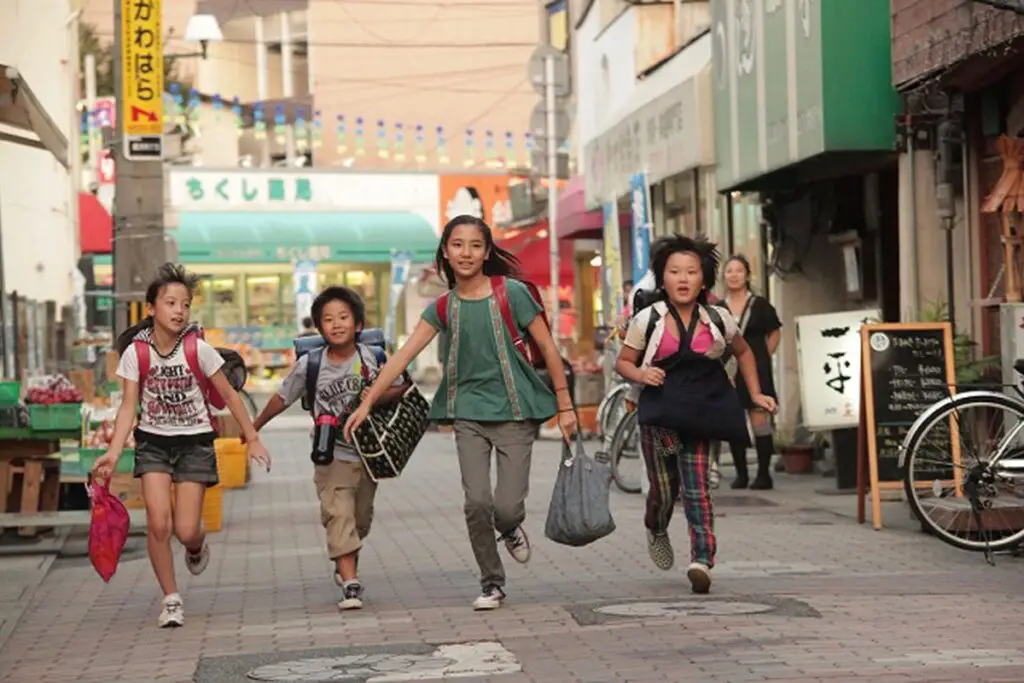Nobody Knows is a 2004 Japanese film by Hirokazu Koreeda, of After Life and Shoplifters fame. The film’s screenplay draws from the real-life Sugamo child-abandonment incident of 1988. The case was about a mother of four who abandoned her children in an apartment to live with her new boyfriend.
The premise is bleak, more so considering the fact that the events in the film have taken place in real life. But Koreeda deliberately chooses to handle the film differently, and does a stellar job at it. By taking an extremely depressing case, and telling the story from the point of view of the children themselves, Koreeda manages to transgress the typical and offers a much more optimistic film experience.
The film introduces the protagonist of the story early on in the film, the leader and caretaker of the rest of the children, Akira. Throughout the film, Akira has acted like the de facto parent of his three siblings, as their mother is almost never home with her children. We see Akira shop for groceries, cook food and even pay the bills, even though he is merely twelve years old. As the film establishes Akira as the parental figure of the family, the audience is constantly reminded that regardless of the responsibilities he takes, Akira is just a child himself. Like other kids his age, he wants to play baseball. He wants his friends to come over to his house. He wants presents for christmas.
I am not the first one to observe how Hirokazu Koreeda has explored the concept of surrogate families, families consisting of people not directly related to each other, in various films he has directed over the years. Likewise, in Nobody Knows, the children of this family are not from the same father. Even then, until this information was revealed, I never stopped to consider otherwise, such is the bond among these ‘siblings.’
Koreeda also has a penchant for family dramas in which the characters face rather extraordinary circumstances. Be it the second marriage of a woman whose husband commits suicide in Maborosi, or the switching of children after birth in Like Father Like Son. In all these films, Koreeda imparts a touch of tenderness no matter how seemingly harsh the circumstances. He does this especially by using minimal camera movement, in situations where other directors might move through the scene at a frenetic pace.
The children in Nobody Knows ( and the ones in real life) are put through unimaginable hardships that remain unknown to most if not all kids their age. Yet Koreeda manages to show a side of the story that is almost cheerful. Because no matter what their situation is, all kids know to do is play. When Akira shuns his responsibilities (which doesn’t happen too often), you realise that this is not supposed to be his job, yet he carries on with it. Akira is luminously played by Yuya Yagira, who won the best actor award at Cannes. He was only 14 then.
I personally don’t think filmmakers ever set out to give sermons when they make films. But through their worldviews, and philosophies which inevitably permeate through the screen, we as the audience are compelled to interpret certain lessons. In Nobody Knows, Koreeda chooses not to convert the real life abandonment case into a high stakes cop drama. That might be interesting to the audience, but it doesn’t interest him. What he does instead is paint a picture from a much more hopeful perspective, a perspective only visible from the lens of a child. This philosophy is reflected from the generous use of colour throughout the film. Or even through the close-ups on mundane things like feet, and hands carrying objects, replicating a child-like curiosity to the world around you.
The title of this film, according to me, hopes to convey that ‘nobody knows’ what those children really went through. But Koreeda opts to imagine a story where the children not only survived, but through their relationships managed to find happiness in hopelessness. They chose to not be bogged down by the ruthless tides of suffering, they chose to fight. And they fought in the only way they could have known. By finding joy in the interstitial, lighter moments of life.
Rating: 4/5
Where to Watch: Hulu
